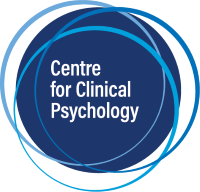PTSD occurs when a person develops rigid, unhelpful beliefs about why a traumatic event occurred.
When something frightening and distressing happens, people search for explanations for why. We construct stories to create meaning. We crave a sense of coherence and control. Sometimes we also lay blame, on ourselves or others.
Yet sometimes there are no good reasons why bad things occur. Terrible can happen to us because of bad luck or poor timing. Despite our wish for the opposite, many things cannot be controlled, and this is especially true in pregnancy and in birth.
“It is all fault my baby was born at 29 weeks. It was the exercise I did, I shouldn’t have done that”
“I wasn’t listened to in labour, I wanted a natural birth instead I had to have an emergency c-section. I’ve failed and I knew I shouldn’t have trusted the medical team”
Beliefs About the Event in PTSD
In PTSD the explanations that people develop to explain why traumatic events occurred, become a set of fixed, rigidly held beliefs which ultimately cause great suffering. These beliefs also tend to distort the person’s views of themselves and others.
The beliefs can be identified because they tend to be extreme, black-and-white, and here is little wriggle room for nuance. This is PTSD. Postpartum PTSD is no different.
Cognitive Processing Therapy for PTSD
Treatment of PTSD using Cognitive Processing Therapy (CPT) involves carefully, deliberately, and objectively examining a person’s beliefs about the traumatic event. Often this involves examining the facts, the role of chance and aspects of the event that have not been considered before. It is a joint undertaking to view the traumatic event with fresh eyes, often from multiple, new perspectives. The therapist cannot presume to know ahead of time how this process will unfold, and must walk the tight rope of tolerating uncertainty, whilst trusting that therapy will unfold in a therapeutic way.
Birth Trauma Recovery
Ultimately, the goa of CPT is to support the woman to reach a point where she can do away with excessive self-blame and critical evaluations. To support her to see that what happened to her was outside of what she could control, what anyone could control. What happened (and perhaps to her baby too) does not mean anything about her as a person. She is not a bad mother. She is fallible. This means she is not perfect but no-one is. Instead she is a wonderfully normal human being.
Birth is always an extreme event in the life of a family. Birth is associated with a range of intense emotions – fear, excitement, shame, anger and joy – for everyone. The unknowable and uncontrollable experience of birth is in fact preparation for the experience of parenting, which shares with birth aspects of the unknowable and at times the uncontrollable.
It is also helpful for the therapist to remind the woman, that at all times she was doing her very best in a very difficult situation. Such kindness and self-compassion are the pathways to greater psychological ease and healing.
At the Centre for Clinical Psychology, we provide training in Cognitive Processing Therapy. See here for training dates in 2022. You can also watch videos of our clients speaking about their experience of participating in CPT.
Access my presentation on Birth trauma from 15th February, or sign up to our newsletter for event launch information here.



